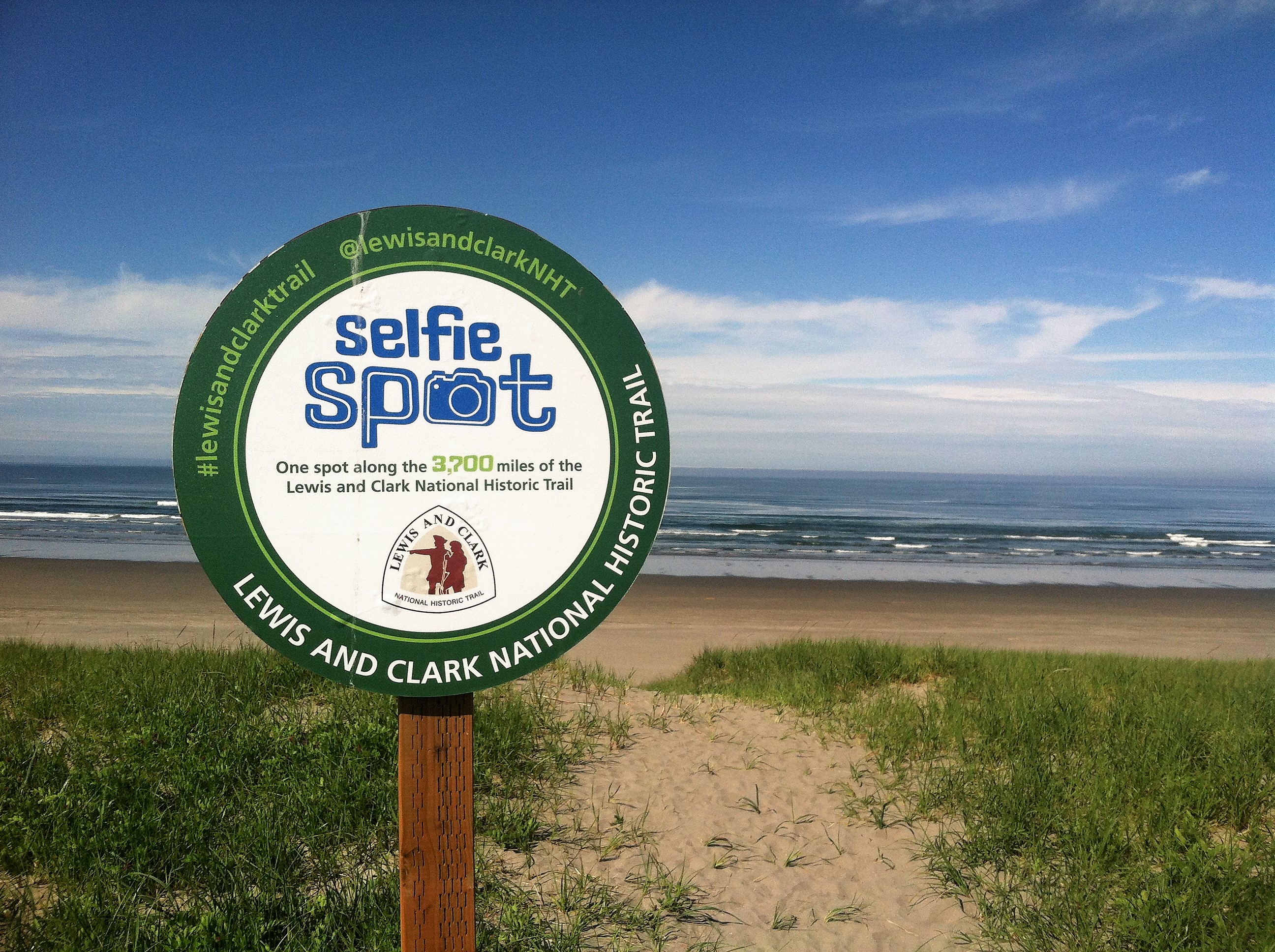The Selfie Sign
I walked west on a trail through the dunes that led to the ocean. It was a familiar trail.
Then ahead I saw something unfamiliar: a large sign erected at the perfect spot atop the dune to view the limitless Pacific. I approached the sign and read: (see graphic).
An immortal line spoken by Al Pacino in The Scent of a Woman came immediately to mind: “If I was half the man I used to be, I would have taken a flamethrower to this place (thing).”
Let us wrestle what that sign represents: the National Park Service (in this case the Lewis and Clark Trail branch) invites people on the threshold of reaching the ocean to stop, pull out smartphones, take selfies, and then engage with social media, thereby aiding and abetting gargantuan media corporations to earn profits from people’ experience in nature. It is quite likely that the National Park Service has some kind of deal with social media giants to promote visitors to share selfies. Surely, the users will be targeted with ads related to this outdoor experience. Thus, the experience has become a form of commercial transaction where the creator of the content earns nothing and debases the very act of going to interact with the ocean.
I’d like to meet the National Parks Service manager responsible for this selfie promotion campaign. I have a lot of questions. One of theme would be: why would you encourage someone about ready to engage with the ocean to engage with social media? Shouldn’t the sign read: “Give up social media for the next hour or two.”
That’s the sticker I might affix to the sign. Is that considered vandalism? Or enlightenment? You can get into trouble enlightening people in this country.
Back in my teacher days, I would have used the picture of the sign to stimulate discussion and serve as a critical thinking writing prompt. I know at least one student would have said, “Well at least they were at the ocean Mr. Love…isn’t that your goal for everyone?”
Or: “You always want us to document our experiences in our journals Mr. Love. Isn’t this sort of documentation to a digital journal?”
My retort: when someone engages with social media in moments such as the one we just discussed, (well, every engagement really has the same outcome), it becomes stripped of its presence and beauty and totally commodified. It turns a profit for a corporation. The data is sold to nefarious agents of marketing and cultural mayhem. Writing in a journal doesn’t do that. Writing in your journal turns a profit for your soul and removes you entirely from the lucrative mayhem our digital culture has become.
Some student would rebut my claim and the discussion would pick up and move in wonderful unforeseen directions.
I sometimes miss the classroom.

